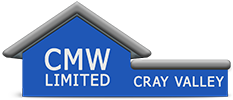
Introduction
Choosing suitable screws and fixings might seem like a small detail in your project, but it's a crucial step that can make a significant difference in its outcome. Whether you're embarking on a DIY home improvement project or working on a professional construction job, selecting the appropriate screws and fixings is essential for ensuring structural integrity, longevity, and overall success. In this comprehensive guide, we'll delve into everything you need to know to make informed decisions about screws and fixings for your specific tasks.
Understanding Screws and Fixings
Before diving into the specifics of choosing the suitable screws and fixings, it's essential to understand what they are and how they work. Screws are threaded fasteners that are used to join two or more materials together securely. Fixings, on the other hand, encompass a broader category of devices used to attach objects to surfaces, including screws, nails, bolts, anchors, and more.
Types of Screws
Wood Screws: Explicitly designed for use with wood, these screws have coarse threads and a tapered point for easy insertion.
Machine Screws: These screws have a uniform diameter along the entire length and are typically used with nuts or tapped holes.
Sheet Metal Screws: Featuring sharp threads and a flat or rounded head, these screws are designed to attach metal sheets or other materials.
Self-Drilling Screws: Also known as Tek screws, these have a drill bit-like tip, making them ideal for drilling into metal without the need for pre-drilling.
Concrete Screws: With special threads and often a hardened coating, these screws are used to attach fixtures to concrete, brick, or block walls.
Factors to Consider:
Material Compatibility: Choose screws and fixings made from materials compatible with the materials you're joining. For example, use stainless steel screws for outdoor projects to prevent rusting.
Size and Length: Select screws of appropriate size and length for the task at hand. Using screws that are too short may compromise the strength of the joint, while screws that are too long can damage the materials.
Head Type: Different screw head types (e.g., flat head, pan head, round head) offer varying degrees of flushness and visibility once installed. Consider your project's aesthetic and functional requirements when selecting a head type.
Thread Type: Coarse threads provide a better grip in wood, while fine threads are more suitable for metal or plastic.
Load-Bearing Capacity: Evaluate the weight and stress the joint will endure to ensure the screws and fixings can support the load safely.
Application-Specific Tips
Carpentry and Woodworking: Use wood screws with coarse threads and a flat or countersunk head for most woodworking projects. Pre-drilling pilot holes can prevent the wood from splitting.
Drywall Installation: Drywall screws with bugle heads are explicitly designed for attaching drywall to studs. Ensure proper spacing and use drywall anchors for heavy items.
Metalworking: Self-tapping screws or machine screws are commonly used in metalworking projects. Lubricate the threads when driving screws into the metal to prevent binding.
Outdoor Projects: Opt for corrosion-resistant screws such as stainless steel or coated screws for outdoor applications to withstand moisture and weather exposure.
Concrete and Masonry: Use concrete screws or anchors designed for masonry applications. Drill pilot holes using a hammer drill with a carbide-tipped masonry bit for best results.
FAQs
Which type of screw should I use for woodworking projects?
For woodworking projects, opt for wood screws with coarse threads and flat or countersunk heads. Pre-drilling pilot holes can prevent wood splitting and ensure a secure joint.
What are the best screws for attaching drywall?
Drywall screws with bugle heads are specifically designed for attaching drywall to studs. Ensure proper spacing and consider using drywall anchors for heavier items.
Can I use the same screws for both wood and metal?
While some screws may work for both wood and metal, it's best to use screws specifically designed for each material. Wood screws have coarse threads, while machine screws are better suited for metal.
How do I prevent rust on outdoor screws?
To prevent rust on outdoor screws, choose corrosion-resistant materials such as stainless steel or coated screws. Regular maintenance and sealing can also help prolong their lifespan.
What size screws should I use for my project?
The size of screws you need depends on the materials being joined and the load-bearing requirements. Ensure the screws are long enough to penetrate both materials securely without being too long and causing damage.
Conclusion
Choosing suitable screws and fixings for your task is a critical step in ensuring the success and longevity of your project. By considering factors such as material compatibility, size, head type, thread type, and load-bearing capacity, you can select the most suitable screws and fixings for your specific application. Whether you're working on a woodworking project, drywall installation, metalworking task, or outdoor construction project, making informed decisions about screws and fixings will help you achieve professional-quality results. With the knowledge gained from this guide, you'll be well-equipped to tackle any project with confidence and precision.
If you want to take a closer look at our range of screws and fixings, click here. If you want to contact or find out more about this blog posts author, Dave click here.
